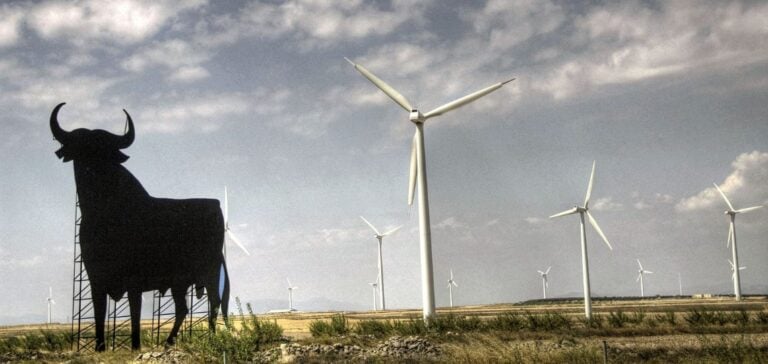The Iberian country reinforces its position as a leader in renewable energies with the recent approval of almost 300 energy projects.
The initiative, announced by the Ministry of Energy, represents an investment of over 17 billion euros ($18.4 billion) and aims to add 28 gigawatts (GW) of installed capacity.
Energy ambitions and investments
This program mainly includes photovoltaic power plants, 43 wind farms and a hydroelectric plant.
These projects capitalize on Spain’s geographical advantages: abundant sunshine, windy areas and fast-flowing rivers.
The aim is to increase the proportion of renewable electricity to 81% by 2030, compared with around 50% at present.
The kingdom’s energy transition is part of a broader strategy to reduce greenhouse gas emissions, in line with commitments made within the framework of the European Union.
This transformation is supported by public and private investment, demonstrating a strong commitment to a green and sustainable economy.
Economic and environmental impact
Renewable energy projects will have a significant impact on the national economy, creating thousands of jobs during the construction and operation phases.
Rural areas in particular will benefit from these new economic opportunities.
The construction of these modern infrastructures will also stimulate local development and improve existing infrastructures.
On the environmental front, the increase in renewable energy capacity will significantly reduce CO2 emissions.
Indeed, every gigawatt added to existing capacity will help reduce dependence on fossil fuels and limit the Iberian Peninsula’s carbon footprint.
Technology and innovation
The newly approved projects incorporate state-of-the-art technologies.
Photovoltaic plants will use high-efficiency solar cells and solar tracking systems to maximize energy production.
The wind farms will be equipped with advanced turbines capable of exploiting lower wind speeds, thereby increasing energy production.
The planned hydroelectric plant will use innovative water management, combining storage and power generation.
This approach will optimize the use of water resources, while minimizing environmental impact.
These technological innovations reinforce the country’s position as a leader in the field of renewable energies.
Government support for these projects underlines the importance of collaboration between the public and private sectors in achieving climate goals.
By working with international partners, the nation shares best practices and strengthens its local technical capabilities.
These developments testify to the authorities’ determination to move towards a greener economy.
Energy transition is both an environmental necessity and a major economic opportunity, fostering sustainable and inclusive growth.
The implementation of these projects positions the nation as a model for other countries to follow, showing that it is possible to reconcile economic development with environmental protection.






















